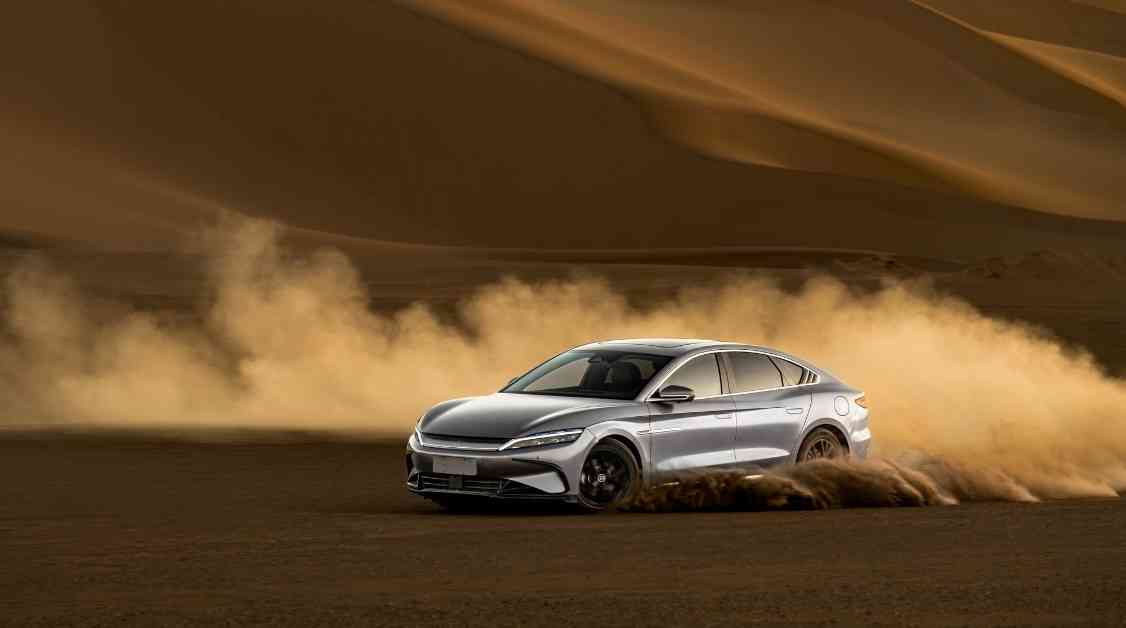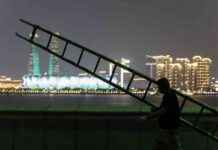BYD recently unveiled the latest iteration of its popular Han sedan, showcasing significant advancements in automated driving technology. Priced at a competitive starting point of RMB 165,800 ($23,278), the sedan is positioned as a strong contender in the ever-evolving electric vehicle market. With the introduction of the DiPilot 300 advanced driver assistance system, BYD is setting a new standard for performance and innovation in the industry.
Revolutionizing Automated Driving
The centerpiece of the new Han sedan is its cutting-edge DiPilot 300 system, which promises to deliver a seamless and intuitive driving experience. As Tesla’s Full Self Driving (FSD) software looms on the horizon in China, BYD is stepping up its game to stay ahead of the competition. The top-end versions of the Han sedan, priced at RMB 235,800 and RMB 225,800 for the all-electric and plug-in hybrid models respectively, come equipped with Nvidia’s Drive Orin processor and a lidar unit mounted on the car’s roof.
The integration of advanced hardware and software components enables the Han sedan to navigate Chinese expressways and urban roads autonomously, marking a significant milestone for BYD’s Dynasty lineup. Customers can also enjoy the convenience of automated parking, thanks to software upgrades provided by local rivals Huawei and Xpeng Motors. This move underscores BYD’s commitment to pushing the boundaries of automated driving technology and enhancing the overall driving experience for consumers.
Competing in the Evolving EV Market
With the electric vehicle market experiencing rapid growth and innovation, automakers like BYD are under pressure to stay ahead of the curve. The Han sedan’s competitive pricing and advanced features position it as a formidable competitor in the luxury sedan segment. By offering both all-electric and plug-in hybrid options, BYD is catering to a diverse range of customers with varying preferences and needs.
The inclusion of Nvidia’s Drive Orin processor in the Han sedan not only enhances its performance but also sets a new benchmark for processing power in electric vehicles. Coupled with the lidar unit for enhanced sensing capabilities, the Han sedan is well-equipped to handle complex driving scenarios with ease. As Tesla gears up to introduce its advanced assisted driving tech in China, BYD’s focus on innovation and technological advancement is evident in the Han sedan’s design and features.
Looking Towards the Future
As the automotive industry continues to evolve, automated driving technology is poised to play a crucial role in shaping the future of transportation. Tesla’s upcoming version 12.5.2 of its FSD software promises a three-fold improvement in miles between necessary interventions, raising the bar for automated driving systems. BYD’s Han sedan, with its DiPilot 300 system and advanced hardware components, is well-positioned to compete in this rapidly changing landscape.
By staying at the forefront of technological innovation and investing in research and development, BYD is paving the way for a new era of automated driving. With the Han sedan leading the charge, consumers can look forward to a more seamless and efficient driving experience in the years to come. As competition heats up in the electric vehicle market, automakers like BYD are pushing the boundaries of what is possible, driving innovation and progress in the industry.














![Indie music fans gather at l’Antipode for [Face B] Kool Things soirée on Saturday night news-15112024-105933](https://shanghainewstv.com/wp-content/uploads/2024/11/news-15112024-105933-324x160.jpg)


